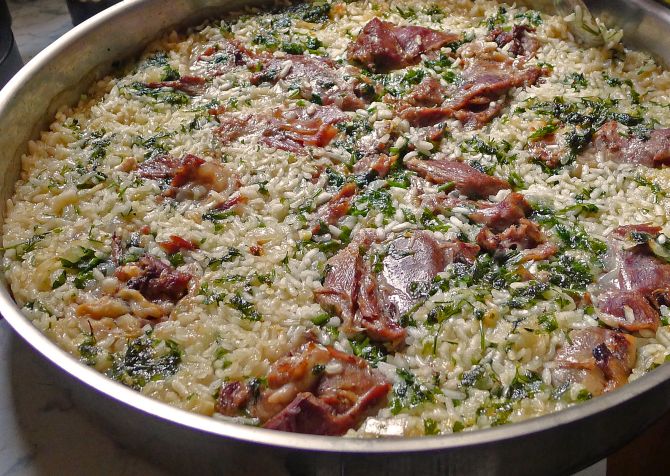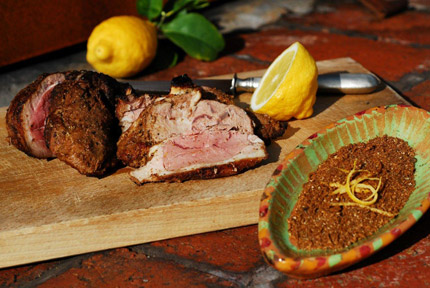Magiritsa is traditionally made with the parts of the lamb not used for spit-roasting. Remember that Greek Easter lambs are very small (about 24 pounds). In the classic recipe, all the innards –heart, lungs, and so forth– go into the pot, but they do not really contribute to taste. The flavor of the stock comes from the boiled head and neck, and the soup gets its distinctive taste from scallions, fresh dill, and egg-and-lemon sauce. There are lots of different magiritsa recipes.
Adapted from The Foods of Greece.

A friend described to me the one her family prepared in Halki, a small island in the Dodecanese. In her family’s version, no innards are used because, on Halki as on all the Dodecanese islands, people do not roast the lamb on a spit, but slow roast it in a wood-burning oven, stuffing the cavity with rice and chopped innards. In Halki’s magiritsa, many lamb’s heads were boiled to make a very tasty stock. The heads were not boned, but as they cooked for many hours, even the bones softened. Each member of the family got one head and ate it with the broth. No scallions or dill were added to that unusual magiritsa. (more…)
Read More




